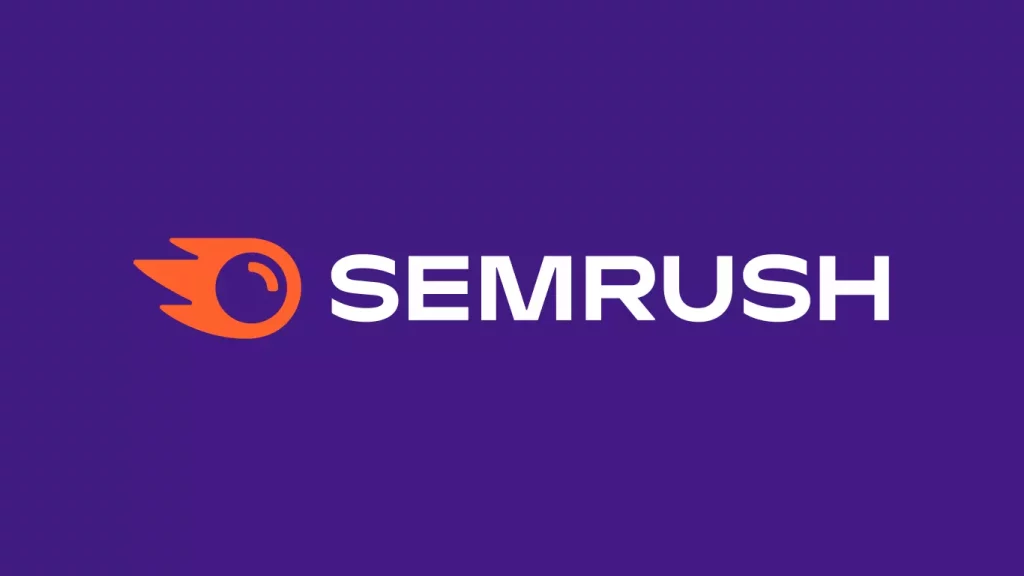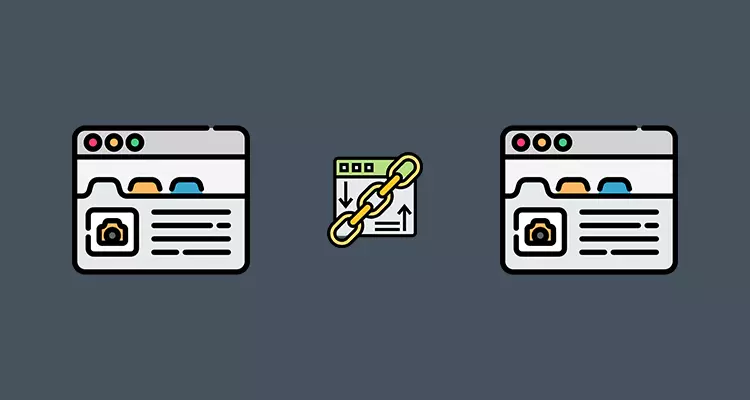
Online marketing is a great way to connect with new customers and create loyalty among your existing customer base. It can help you increase sales, launch new products or services, and grow your business. There are many different aspects of online marketing, but one of the most important is search engine optimization (SEO). That is why we are writing a blog about the best SEO tips and tricks which includes topics such as keyword research, backlinks, and optimization.
SEO is the process of making sure that your website appears as high as possible in search engine results pages (SERPs) so that people who are looking for what you offer can find you easily. There are multiple methods for improving SEO. As we all know keyword research is one of the most important methods.
One of the best ways to improve SEO is to create high-quality backlinks. Backlinks are links from other websites that point to your site. The more high-quality backlinks you have, the higher your site will rank in SERPs.
There are several ways to get high-quality backlinks, including submitting your site to directories, writing guest blog posts for other websites, and participating in link exchanges.
The higher your website ranks in SERPs, the more likely people are to click on it and visit your site. That means more potential customers for you!
SEO is not a one-time thing, however. It’s an ongoing process that requires constant attention and effort. But it’s worth it, because the higher your website ranks, the more traffic you’ll get, and the more sales you’ll make.
Here are the best SEO tips and tricks that will help you get started with SEO.
Best SEO Tips And Tricks
1. Do your keyword research
To start with our best SEO tips and tricks, we begin with keyword research. One of the most important things you can do to improve your SEO is to choose the right keywords. These are the words and phrases that people will use when they search for something on a search engine.
Here are some keywords research tips:
Use keyword tools like Google AdWords Keyword Planner and Moz’s Keyword Explorer to help you find keywords related to your topic.
Think about what words and phrases people would use to search for your topic.
Try to think like your target audience and use their language when brainstorming keywords.
Use long-tail keywords. These are keywords that are more specific and include 3 or more words. They are often easier to rank for because there is less competition.
Choose keywords that have a high search volume but low competition.
Make sure that your chosen keywords are relevant to your business and used throughout your website.
Include your keywords in your website title, meta descriptions, header tags, and throughout the content on your website.
Monitor your competitors’ SEO strategies and use the same or similar keywords.
2. Optimize your website after keywords research
After your keyword research, it’s important to optimize your website for search engines. This means making sure that your website is coded in a way that makes it easy for search engines to crawl and index your content.
Here are some tips for optimizing your website for search engines:
Make sure your website is coded in HTML5.
Include a sitemap and robots.txt file to help search engines crawl and index your website.
Use keyword-rich titles, meta descriptions, header tags, and content throughout your website.
Optimize your images for search engines by using keywords in the file name and alt text.
Create fresh, original, and engaging content on a regular basis.
Build high-quality backlinks to your website from other websites.

Semrush one of the best tools for Keyword research: https://www.semrush.com/
3. Publish high-quality content
Another important part of SEO is publishing high-quality content. This is content that is interesting, engaging, and useful to your audience. Not only will this help to attract more readers to your site, but it will also help to improve your search engine ranking. If your content is good, people will want to read it, share it, and link to it. That will help improve your website’s ranking in SERPs.
One way to ensure that your content is high quality is to make sure that it is keyword rich. This means including relevant keywords throughout your text.
4. Build backlinks to your site
For your website to rank well in SERPs, you need backlinks from other websites. These backlinks are like votes of confidence, and the more backlinks you have, the higher your website will rank. You can get backlinks in a few different ways:
Create great content that other people will want to link to. This could be a blog post, an infographic, or even just a well-designed home page.
Reach out to other website owners and ask them to link to your site. You can do this by finding websites that are relevant to your niche and emailing the owners asking for a link.
Use social media to promote your content and get people to link to it. Share your blog posts on Twitter, Facebook, and LinkedIn, and post links to infographics and other interesting content on your social media profiles.
Get involved in online forums and discussions related to your niche. Leave thoughtful comments on blogs and forum posts, and include a link to your website when you do.
Make sure the links are of high quality in DA and PA. You can use tools like Ahrefs and Moz to find high-quality websites that are relevant to your niche.

5. Optimize your website for Page speed
For your website to rank well in SERPs, you need to optimize it for search engines.
Make sure your website is fast and responsive. A slow website will not only rank lower in SERPs, but it will also frustrate users, leading to a higher bounce rate. Likewise, an unresponsive website will also rank lower and frustrate users
You can use Google’s PageSpeed Insights tool to check your website’s speed. If it’s slow, you need to work on improving it.
Here are 6 tips to make your website faster:
Use a content delivery network (CDN).
Optimise images.
Minimise HTTP requests.
Use caching
Minimise CSS and JavaScript files.
Avoid redirects.
If you follow these tips, you should see a significant improvement in the speed of your website. This will please both your visitors and Google, leading to higher rankings in Google.
6. Monitor your SEO progress
It’s important to monitor your SEO progress so that you can see how well your efforts are paying off. There are a number of tools and services that can help you do this, such as Google Analytics.
Make sure to track your website’s traffic, rankings, and organic search referrals so you can see what improvements have been made. If you’re not seeing the results you want, then make changes to your SEO strategy and continue monitoring your progress.
SEO is a long-term process, but by monitoring your progress and making necessary adjustments, you can ensure that your website is performing well in the search engines.
7. Regularly update your website
Regularly updating your website with fresh content is another tool to rank well in SERPs. This means publishing new blog posts, articles, and case studies. You can also update your website’s images and videos. All of this helps to improve your website’s SEO.
One way to make sure that your website is regularly updated with fresh content is to set up a blog. You can then post new articles, case studies, and other types of content on a regular basis. This will help to improve your website’s SEO and keep people
You can use tools like Google Trends and BuzzSumo to find popular topics to write about. This will ensure that your content is timely and relevant. Another useful tool is our website maintenance service.
8. Use social media to promote your website
In order for your website to rank well in SERPs, you need to promote it on social media. This means sharing your website’s content on Facebook, Twitter, and LinkedIn. You can also promote your website on forums and discussion boards.
Make sure to include links to your website in your social media profiles, and encourage others to share your content. If you have a blog, make it easy for readers to share your posts on social media. Include social sharing buttons on each blog post.
You can use tools like Hootsuite and Buffer to help you manage your social media accounts.

9. Use paid advertising to promote your website
For your website to rank highly in search engines, you must utilize paid advertising. This entails placing ads on Google, Facebook, and LinkedIn. AdWords and Facebook Ads Manager are two such tools that may be used to create and manage advertising campaigns.
LinkedIn Ads is also a tool that may be used to create and manage LinkedIn advertising campaigns. Paid advertising is an effective way to improve your website’s visibility and organic search traffic.
Paid advertising has several advantages over other marketing strategies, such as:
You can target a specific audience with paid ads. This ensures that your ad reaches the right people and that you are not wasting your time and money on ads that no one will see.
Paid ads are immediate. Unlike SEO, which can take weeks or even months to show results, paid ads will start working as soon as they are live. This makes paid advertising an ideal strategy if you need to quickly boost your website’s traffic or sales.
Paid ads can be customized to match your website’s branding. This ensures that your ads are in line with your company’s overall marketing strategy and that they look professional and polished.
Paid advertising is adjustable. If you find that a particular ad isn’t working well, you can easily change it or pause it. This flexibility allows you to experiment with different ads and find the ones that work best for your business.
Overall, paid advertising is an effective way to improve your website’s visibility and organic search traffic. It is a fast, customizable, and adjustable marketing strategy that can help you achieve your business goals.
We offer multiple advertising services which are compatible with SEO. See SEA, Social media marketing, and E-mail marketing.
10. Stay up-to-date with the latest search engine algorithms
If you want to stay ahead of the curve, it’s important to keep up with the latest search engine algorithms. This means following the news from Google, Bing, and Yahoo. You can use tools like Google Alerts and RSS feeds to keep track of the newest information. Additionally, attending search engine optimization (SEO) conferences can give you the latest tips from industry experts.
11. Optimize your website for voice search
With the rise of digital assistants like Siri, Alexa, and Google Home, more and more people are using voice search to find information online.
If you want to ensure that your website can be found through voice search, you need to optimize it for this feature. This means making sure that your website is mobile-friendly and including long-tail keywords in your content and metadata. By doing this, you can make sure that potential customers can find you no matter how they are searching.
Final word – best seo tips and tricks
That’s it! These are the best seo tips and tricks for optimizing your website for search engines. If you follow these guidelines, you should see an improvement in your website’s ranking and organic traffic. Remember to do your own research and experiment with what works best for your website. And most importantly, have patience! SEO takes time to see results. But if you stick with it, you will see improvements over time.
SEO is a complex and ever-changing field, so it’s important to stay up to date on the latest techniques. Here are a few resources to help you continue your learning:
Google Webmaster Central Blog: This is the official blog for Google’s webmaster tools. If you want to stay up to date on the latest from Google, this is the blog to follow.
Whiteboard Friday: This is a weekly video series from Moz that covers a variety of SEO topics. It’s a great way to learn more about SEO in a fun and engaging format.
Google’s Search Console Help Center: This is Google’s official help center for their webmaster tools. If you need help using any of the features in Search Console, this is a great resource.
The Beginner’s Guide to SEO: This guide from Moz is a great starting point for anyone who wants to learn more about SEO. It covers the basics of SEO and provides a wealth of resources for further learning.
SEmrush: This is a paid tool that offers a variety of features for SEO analysis. If you want to dive deep into your website’s SEO, SEmrush is a great tool to use.
Stay up-to-date on the latest SEO trends and changes to the search engine algorithms, and continue to produce high-quality content that will keep people coming back for more. Thanks for reading!









2 responses
very helpful
Great to hear!